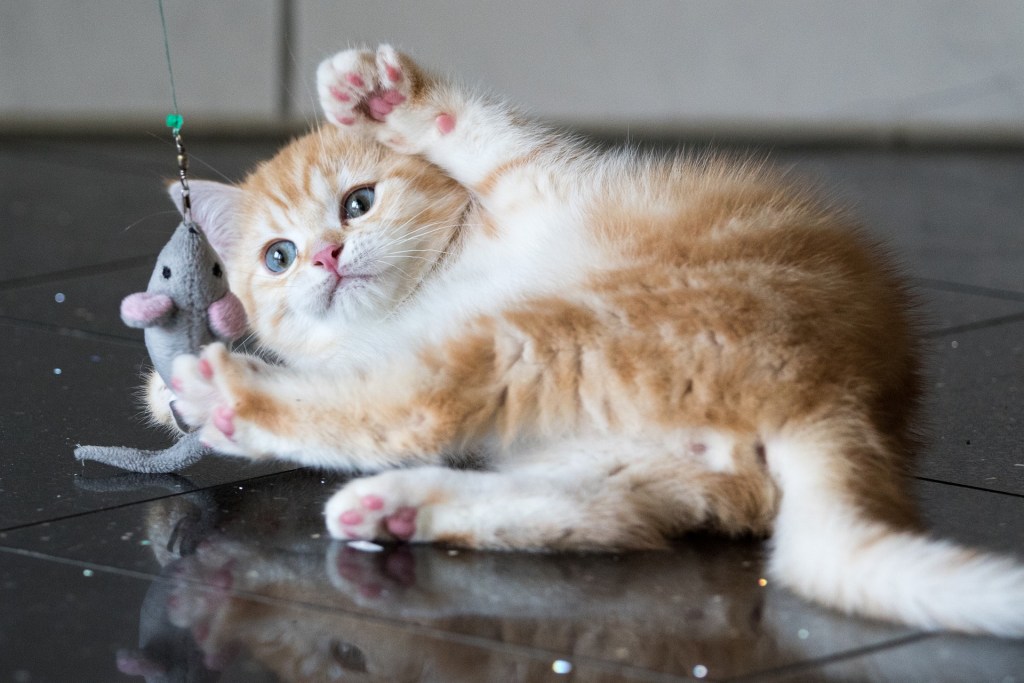Getting a new kitten is an exciting experience, but it also carries a lot of responsibility. Not only are you adding a new family member to your home, but kittens can require a lot of care, especially if they’re young. It’s always important to prepare for a new pet by carefully researching what to expect and what supplies you’ll need. A kitten requires even more preparation, which is why we’ve outlined some of the essentials you need to know and the supplies you’ll need. The more you can learn about kittens ahead of time, the better prepared you’ll be to give your new kitten the care he needs and make his adjustment to his new home as smooth as possible.

What should first-time kitten owners know?
If you’ve never had a kitten before, then bringing one home can seem overwhelming. The good news is there are a ton of resources online to help you prepare for your new pet.
If you’ve never had a cat, it’s best to start by calling a few local veterinarians and asking about their rates. Ask questions about kitten appointments and vaccine prices for kittens, but also ask about the average cost of caring for an adult cat. If your kitten isn’t yet spayed or neutered, get a quote for that surgery as well. Veterinary care is essential for your cat, but it can also be surprisingly expensive if you’re new to pet ownership.
How to prepare for a new kitten
There’s a lot to do to prepare for a new kitten. You’ll want to shop for some essential items that you’ll need for your kitten:
- Litter box
- Non-clumping litter
- Kitten food
- Food and water dishes
- Treats
- Toys
- Cat bed or blanket
- Scratching post
- Kitten-proofing supplies like pet gates
- Cat carrier
- Collar with ID tags
Start shopping early so you’ll have all your supplies ready by the time you’re ready to bring your new kitten home.
Vet Street recommends that before you pick up your kitten, you spray his carrier with a pheromone spray to help him feel comfy. You’ll also want to focus on kitten-proofing your home to keep your new addition safe. You’ll want to put away anything that could possibly hurt your kitten, including items like electrical cords, string, thread, and the cords on your blinds. If you have plants in your house, you’ll need to double-check that they’re non-toxic and won’t harm your curious kitten if he has a nibble.
It’s also important to identify a space where you can keep your kitten when he first comes home. Securing your kitten in a smaller area like a single room can help him feel more comfortable and safe. Think about which room in your house would work best for this, and make sure that it’s quiet and that you can keep other pets out of it. It’s also helpful if that room has a floor that’s easy to clean, like a tile floor, just in case your kitten has an accident or two when he’s learning how to use his litter box.
Can a kitten be left alone during the day?
While adult cats may be just fine when left home alone during the day, young kittens need more attention and supervision. If you know you’ll need to leave your kitten alone during the day, start coming up with a plan about how to handle that now. You’ll need to make sure that your kitten is in a safe space where he can’t get into trouble while you’re not home. Setting up a pet cam can also help you to keep an eye on him.
If possible, you might want to bring in a pet sitter who can check on and interact with your kitten while you’re at work. This can be very helpful in giving your kitten reassurance and valuable socialization when you can’t be home and when he’s still young and learning about his new home.

What to know when getting a kitten
Kittens can be a lot of work. They need plenty of attention, supervision, and love, and your new feline friend is no exception. He’ll need toys to keep him entertained and help him burn off energy. He’ll also need age-appropriate food that’s specially formulated with all the nutrients kittens need to help them develop into adults.
Perhaps most importantly, he’ll need vet care to help him grow up into a healthy adult cat. If you’re planning to get a new kitten, make sure that you have a veterinarian who you can contact right away for necessary routine care and for any emergencies that may arise. When you get your kitten, give your vet a call to schedule your kitten’s first appointment. You’ll want to send the vet any records you have from the kitten’s previous home, and then your vet can help you to get your kitten up-to-date on any vaccinations and other care. Your vet will be your partner in keeping your kitten healthy both now and when he’s an adult cat, so be sure to discuss any questions you might have with your vet.


